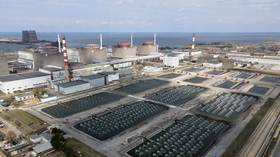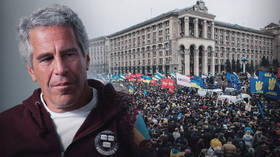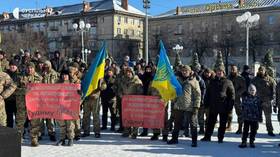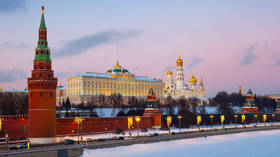Russia warns of another Chernobyl
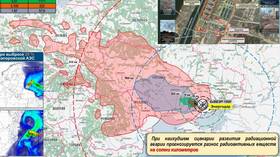
Ukraine’s ongoing attacks on the Russia-controlled Zaporozhye nuclear power plant may cause a far worse disaster for Europe than the current energy crisis, a Russian Defense Ministry official has warned.
Igor Kirillov, who heads Russia’s Nuclear Biological and Chemical Defense Troops, illustrated the likely worst-case scenario of a direct hit on Europe’s largest nuclear plant, during a briefing on Thursday. He showed journalists a map, with plumes of radioactive material from the site reaching Poland, Slovakia, Romania, Moldova, Belarus and even Germany.
He blamed Ukraine's Western backers for trying to downplay the danger of targeting the atomic plant, and forgetting the lessons of the 1986 Chernobyl disaster and the 2011 Fukushima nuclear incident.
According to Kirillov, both disasters involved “the failure of support systems, the disruption of power supply and partial and complete shutdown of the cooling systems, which led to overheating of nuclear fuel and the destruction of the reactor”.
The fallout of the Chernobyl disaster affected some 20 countries, while causing 4,000 deaths, a major spike in cancer cases, and the permanent relocation of around 100,000 people. The effects of the Fukushima nuclear incident might seem “insignificant” at first glance, but up to 500,000 people have abandoned their homes because of it, he noted.
“Our experts believe that the actions of the Ukrainian armed forces may cause a similar situation at the Zaporozhye nuclear power plant,” Kirillov said.
Strikes by the Kiev forces could render the plant’s cooling systems and other support infrastructure inoperable, which would lead “to overheating of the core and, as a result, the destruction of reactor units at the largest nuclear power plant in Europe, with the release of radioactive substances into the atmosphere and their spreading for hundreds of kilometers,” he warned.
“Such an emergency will cause mass migration of the population and will have more catastrophic consequences than the looming energy crisis in Europe,” the military official added.
Moscow has accused Kiev of carrying out 12 attacks on the nuclear facilitity, which provides energy to both Russian- and Ukrainian-controlled areas, since mid-July.
Ukraine insists that Russian forces are shelling the site, while accusing them of stationing military hardware at the plant. The Russian side has denied both accusations, while also urging International Atomic Energy Agency (IAEA) experts to visit the Zaporozhye facility to see what is actually happening.
